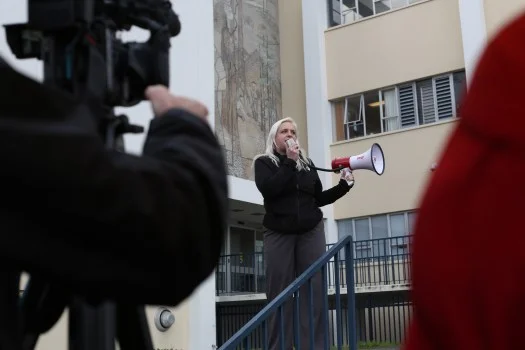
When Faith and Emergency Care Collide: What’s at Stake for Women’s Health?
In a landmark ruling that underscores the ongoing tensions between religious rights and public health, a California court has rejected a hospital's attempt to dismiss a lawsuit over denied emergency abortion care. This decision highlights California's firm stance on reproductive rights, raising critical questions about access to essential medical services amid legal and ethical debates.
The case centers on Providence St. Joseph Hospital in Eureka, where patient Anna Nusslock faced a life-threatening obstetric emergency in October 2024. At 15 weeks pregnant with twins, Nusslock learned that one twin's amniotic sac had ruptured, putting her health at severe risk. Despite doctors determining that an abortion was necessary to save her life, hospital staff refused to perform the procedure due to the facility's religious policies, which prohibit abortions unless a fetal heartbeat has stopped or immediate danger is imminent.

California Attorney General Rob Bonta spearheaded the lawsuit, accusing the hospital of violating state laws, including the Emergency Services Law, the Unruh Civil Rights Act, and the Unfair Competition Law. In his statement, Bonta emphasized, "Denying emergency abortion care to pregnant patients who need it is both traumatic and unlawful under multiple laws." The Humboldt County Superior Court, under Judge Timothy Canning, overruled the hospital's arguments that these laws infringed on their religious freedoms or required prior investigation by health authorities. Canning noted that the refusal was based solely on "faith-based policies," not medical necessity, allowing the case to proceed.
This ruling draws parallels to broader national debates on reproductive rights, especially following recent federal conscience clause protections. Providence, a Catholic organization, argued that its directives align with religious tenets and federal laws, claiming they provide care in true emergencies. However, critics, including Bonta, counter that such policies endanger lives and undermine California's commitment to comprehensive emergency services. The court's decision not only rejects dismissal but also spotlights similar cases, like Fellowship of Christian Athletes v. San Jose Unified School District, where laws burdening religious exercise must be neutral and applicable—here, prioritizing public safety over doctrine.

As the case moves forward, it serves as a stark reminder of the human cost involved. Nusslock was forced to seek care elsewhere, enduring a risky transfer with hospital-provided supplies, highlighting the real-world impact of these policies. This event, occurring in early 2025, amplifies the need for clarity in how religious institutions operate within secular legal frameworks, potentially influencing future policies nationwide.
In conclusion, this ruling reaffirms California's dedication to protecting reproductive rights while exposing the complexities of balancing faith and law. What happens next could set precedents for emergency care access across the U.S. As debates intensify, we invite readers to share their thoughts: Should religious exemptions override life-saving medical needs? Join the conversation in the comments below and spread this story to spark wider discussion.